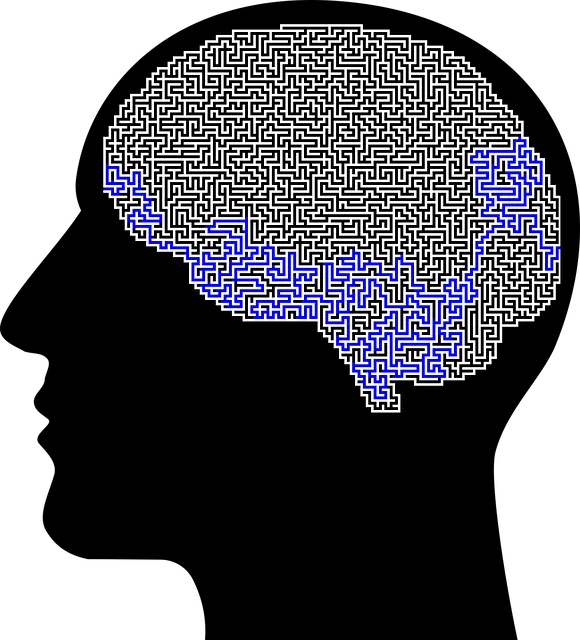In today's fast-paced world, digital solutions like mental wellness apps are emerging as game-changers, offering 24/7 access and self-care practices focused on inner strength and positive thinking. These apps, inspired by centers like the Arvada Kaiser Permanente mental health center, should include diverse features such as self-assessment tools, personalized therapy plans, mood trackers, and mindfulness exercises. A user-centric approach, evidence-based practices, and data analytics ensure their effectiveness. Integrating with the Arvada Kaiser Permanente Mental Health Center provides seamless access to professional services from home, enhancing risk management and promoting proactive mental health care. To successfully launch a mental wellness app, highlight tailored features, engage users through digital marketing, and offer promotions to drive downloads and user engagement.
In today’s fast-paced world, mental wellness apps are becoming indispensable tools. With an increasing demand for accessible and personalized mental health support, understanding the needs of users is crucial. This article explores the development of mental wellness apps, from identifying key features to designing user-centric solutions. We delve into successful integration with established centers like the Arvada Kaiser Permanente Mental Health Center, offering valuable insights on marketing strategies for a robust app launch.
- Understanding the Need for Mental Wellness Apps
- Features and Functionality of Effective Apps
- Designing User-Centric Mental Health Solutions
- Integration with Arvada Kaiser Permanente Mental Health Center
- Marketing and Success Strategies for Your App Launch
Understanding the Need for Mental Wellness Apps

In today’s fast-paced world, mental wellness is a growing concern for many individuals seeking support beyond traditional healthcare settings. This need is particularly evident in communities like Arvada, where Kaiser Permanente mental health centers play a vital role in providing access to psychological services. However, with increasing demand and limited resources, these centers face challenges in catering to the diverse needs of their patients. Here, digital solutions like mental wellness apps emerge as a game-changer.
These innovative tools offer 24/7 accessibility, ensuring individuals can practice self-care conveniently. By focusing on aspects such as Inner Strength Development and incorporating techniques like Positive Thinking, app users can enhance their mental resilience. Moreover, with Healthcare Provider Cultural Competency Training integrated into these apps, they cater to a broader audience by addressing various cultural and diverse needs, thereby promoting inclusivity in mental health support.
Features and Functionality of Effective Apps

Effective mental wellness apps should offer a range of engaging features and functionality to cater to diverse user needs. One such app, inspired by the comprehensive services provided at Arvada Kaiser Permanente mental health center, could incorporate tools for self-assessment, personalized therapy plans, and accessible resources for Depression Prevention and managing stress. Interactive elements like mood trackers, meditation guides, and journaling prompts can empower users to actively engage in their mental well-being.
Moreover, incorporating Mind Over Matter Principles into the app’s core curriculum can equip individuals with valuable coping strategies. Features such as guided mindfulness exercises, cognitive behavioral therapy (CBT) techniques, and confidence-boosting activities help users develop resilience and promote positive mental health. Regular updates and a supportive community within the app can further enhance user experience and foster a sense of belonging.
Designing User-Centric Mental Health Solutions

In the realm of mental wellness app development, a user-centric approach is paramount. At the Arvada Kaiser Permanente mental health center, for instance, digital solutions are tailored to meet the unique needs and preferences of each individual. This involves designing intuitive interfaces that promote engagement, as well as incorporating evidence-based practices such as cognitive-behavioral therapy (CBT) techniques, mindfulness exercises, and personalized mood tracking. By prioritizing user experience, these apps not only facilitate access to mental health resources but also foster a sense of control and empowerment among users.
The integration of features like tailored recommendations for stress management workshops organization and mood management tools is pivotal in enhancing public awareness campaigns development. Such apps can help normalize conversations about mental health, reduce stigma, and encourage proactive care-seeking behaviors. Moreover, by leveraging data analytics to understand user behavior and preferences, developers can continuously refine and improve these solutions, ensuring they remain relevant and effective in meeting the evolving needs of individuals seeking support for their mental wellness.
Integration with Arvada Kaiser Permanente Mental Health Center

The integration of a mental wellness app with the Arvada Kaiser Permanente Mental Health Center represents a significant step forward in leveraging technology to enhance mental health support. This collaboration allows for seamless access to professional services and resources, ensuring that patients can receive personalized care from the comfort of their homes. By integrating with the center, the app gains direct access to expert advice, evidence-based practices, and the latest research in mental wellness, enabling it to offer up-to-date tools and techniques for managing stress, anxiety, and depression.
Moreover, this integration facilitates the implementation of burnout prevention strategies specifically tailored for healthcare providers. The app can incorporate Mind Over Matter principles to promote self-care and resilience among mental health professionals, who often face high-stress environments and demanding schedules. Additionally, risk management planning for mental health professionals becomes more accessible, ensuring that both practitioners and patients are equipped with the knowledge and resources needed to navigate potential challenges effectively.
Marketing and Success Strategies for Your App Launch

To ensure a successful launch for your mental wellness app, marketing and strategy are key. First, establish a clear unique selling proposition (USP) that sets your app apart from competitors. Highlight features like personalized Mental Wellness Journaling Exercise Guidance or innovative Stress Reduction Methods tailored to users’ needs, especially those seeking support akin to what they might find at an Arvada Kaiser Permanente mental health center.
Leverage digital marketing channels effectively by creating engaging content around your app’s benefits. Promote Empathy Building Strategies, for instance, through social media posts and blogs targeting individuals facing mental health challenges. Collaborate with influencers or industry experts to boost reach and credibility. Additionally, consider offering limited-time promotions or free trials to encourage downloads and foster user engagement from the outset.
Mental wellness apps have become a crucial tool in addressing the growing demand for accessible, personalized support. By integrating evidence-based practices and user-centric design, these applications offer a revolutionary way to enhance mental health and well-being. As demonstrated by the successful partnership with Arvada Kaiser Permanente Mental Health Center, strategic marketing and an understanding of target audiences are key to a successful launch. With the right approach, mental wellness apps have the potential to reach and support a wide range of individuals, fostering a more inclusive and resilient community.






